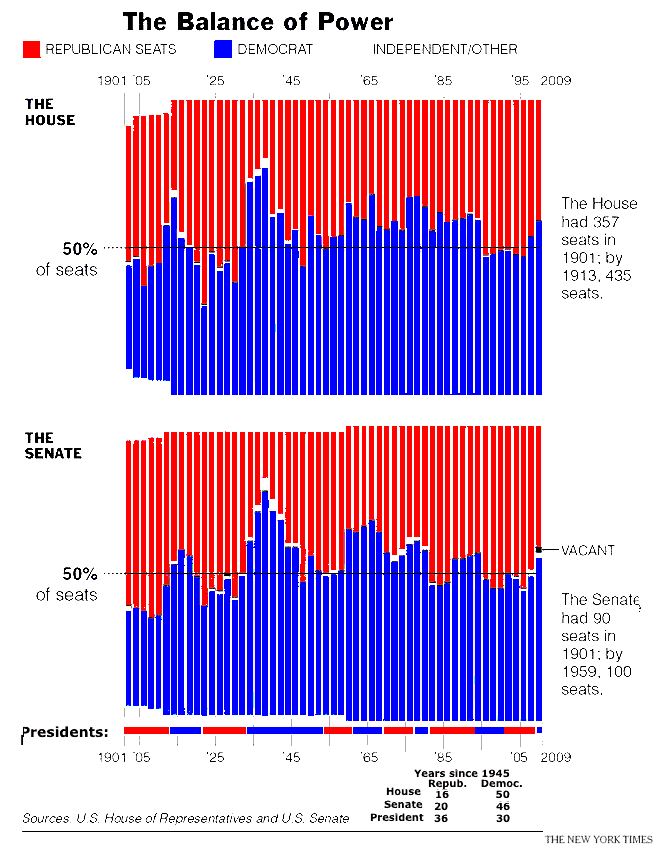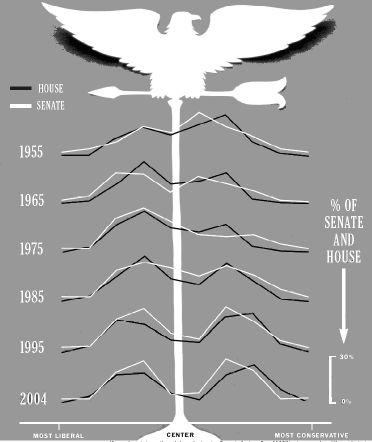
In his first month in office President Obama got only 3 republican votes for his $787 billion economic recovery package, despite a lot of talk about the need for bipartisan support.
In "Cutting the President Slack Is So Old School", NY Times, Feb. 21, 2009, Sheryl Stolberg says:
"The concept of a loyal opposition -- that the party out of power can oppose the government without trying to overthrow it -- is, of course, as old as the United States itself. "We are all Republicans -- we are all Federalists," Thomas Jefferson declared in at his first inaugural, heralding the birth of the American multiparty system."
"Eventually, the concept of the "loyal opposition" came to mean that a president, especially a new one elected by comfortable majority, could expect cooperation from the other side, in deference to the will of the voters. But in the partisan politics of recent decades, another view developed, advanced by Congressional leaders like Newt Gingrich, the former House speaker, that the minority party has the right, even obligation, to stick to its ideological principles."
Polarization:
 In a June 23, 2005, New York Times article "One Nation, Divisible" by Norman Ornstein And Barry Mcmillion , of the American Enterprise Institute, attribute much of it to Congressional redistricting. They say:
In a June 23, 2005, New York Times article "One Nation, Divisible" by Norman Ornstein And Barry Mcmillion , of the American Enterprise Institute, attribute much of it to Congressional redistricting. They say:
"Thirty-three percent of House members were near-pure centrists in 1955; in 2004, just over eight percent fit that category. Thirty-nine senators were centrists in 1955, compared with nine in 2004."
"The expansion in the number of safe seats in the House that began in the 1980's has put an increased importance on primaries, which favor more ideological candidates."
See Polarization on the main page.
Return to Politics
last updated 1 Mar 2009
|
